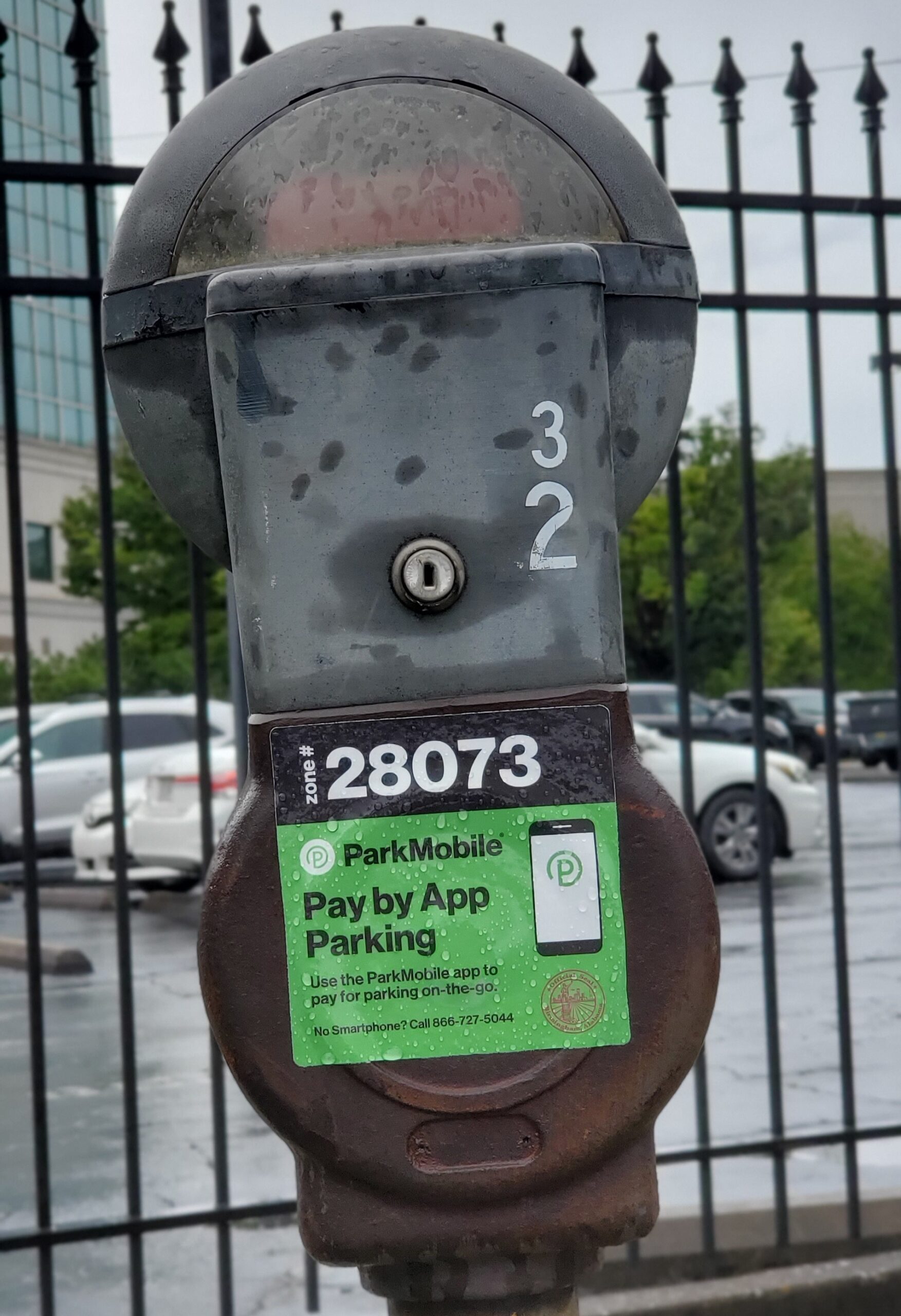By Jonathan Crain
REV Birmingham
Parking seems simple, right? Pull up in front of your destination and park the car. If there’s not a space there, we should add more spaces. That’s the assumption developers and cities have been working under for decades now.
It’s led us to build more and more surface parking, and even to adopt mandatory parking minimums for new developments. Unfortunately, most parking sits unused most of the time. But even when we are not using it, this excess parking has hidden costs.
The average surface parking spot in America costs a builder between $5,000 and $10,000, while a space in a parking garage costs between $25,000 and $50,000. Mandating that a new developer provides a certain amount of parking based on their proposed square footage or building use is supposed to take that cost off the back of the public, but, one way or another, we all bear the weight.
The most obvious way we all pay for it is when the cost of that parking requirement is offset by charging users with an app, meter, or attendant. Less obviously, the cost of that parking gets passed from the developer and rolled into the rent that a tenant in that space will pay. That then factors into the tenant’s bottom line and ultimately affects the price of their goods and services.
According to Strong Towns, these parking minimums heavily favor large corporations that are capable of eating the added parking cost over smaller local retailers that make a city vibrant and interesting.

There is also a cost hidden in the physical form of new development burdened by high parking minimums. As more parking is required, our new homes and businesses get pushed farther and farther apart. So what? That distance has a much higher cost than you would think.
The more “dead space” there is on the street without a building up to the sidewalk, the less walkable a neighborhood becomes. Planetizen found that “ a one-percent increase in walkability yielded a $1,329 increase in property values; a one-percent increase in sidewalk density generated a $785 increase in property values.”
Those numbers don’t take into account the additional maintenance of every public service that is being spaced farther and farther apart. Sewer, fire, power, police and other services become more expensive as development becomes less dense. That lack of density also DECREASES the tax revenue that cities would use to pay for those INCREASED service costs over the same area of land.
The final major price we pay for overburdened parking minimums is completely hidden. It is the cost of all the projects that a city loses because the minimum can’t be met.
Developers want to make sure that their development will sustain itself and be profitable. Adding arbitrary minimums that are, in many cases, based on guesses for the buildings’ use and occupancy and ignore existing parking stock are obstacles too big for a project to overcome. This leads to empty historical buildings and vacant tracts of land in what should be vibrant and activated neighborhoods.
Related News
-
Why we say yay to two-way streets
Filed Under: Developer, Downtown Birmingham, Filling Vacant Spaces, Front Page, Transportation, Yaysayers
REV Birmingham is a long-time advocate for making the switch to two-way streets downtown, and this is something recommended by planners studying our downtown for years. In fact, the team that developed the 2004 City Center Master Plan recommended many street changes but noted 4th Avenue North conversion should take place “immediately.” We believe this project is a catalytic moment for Birmingham – but you may find yourself wondering why that is.
-
The Key Tool for Urban Revitalization: Downtown BHM's Business Improvement District
Filed Under: Business-Proving, Developer, Downtown Birmingham, Front Page, Get Involved, Potential-Proving, Why BHM
By the time REV took on BID management in 2018, downtown had a new set of needs from its BID. Downtown Birmingham in the ‘90s had a population mainly of 9 to 5 employees. But the downtown of 2018 had a whole new population of residents and visitors throughout the day and night. We had new opportunities to create positive experiences, inviting them into more downtown businesses and public spaces, and to keep them coming back for more.
-
Introducing the six businesses that call Nextec home
Filed Under: Business-Proving, Developer, Downtown Birmingham, Filling Vacant Spaces, Front Page, Historic Preservation, Potential-Proving, Why BHM
On the corner of 3rd Avenue and 16th Street North, you’ll find Nextec, a redevelopment of the 90-year-old, 65,000-square-foot Edwards Motor Company building (also formerly known as the Sticks ‘N’ Stuff building). With experience in historic renovation, developer Michael Mouron, chairman of Capstone Real Estate Investments, began this civic project in 2021 as a space for business startups to continue their work in the Magic City – a function encouraged by REV Birmingham.